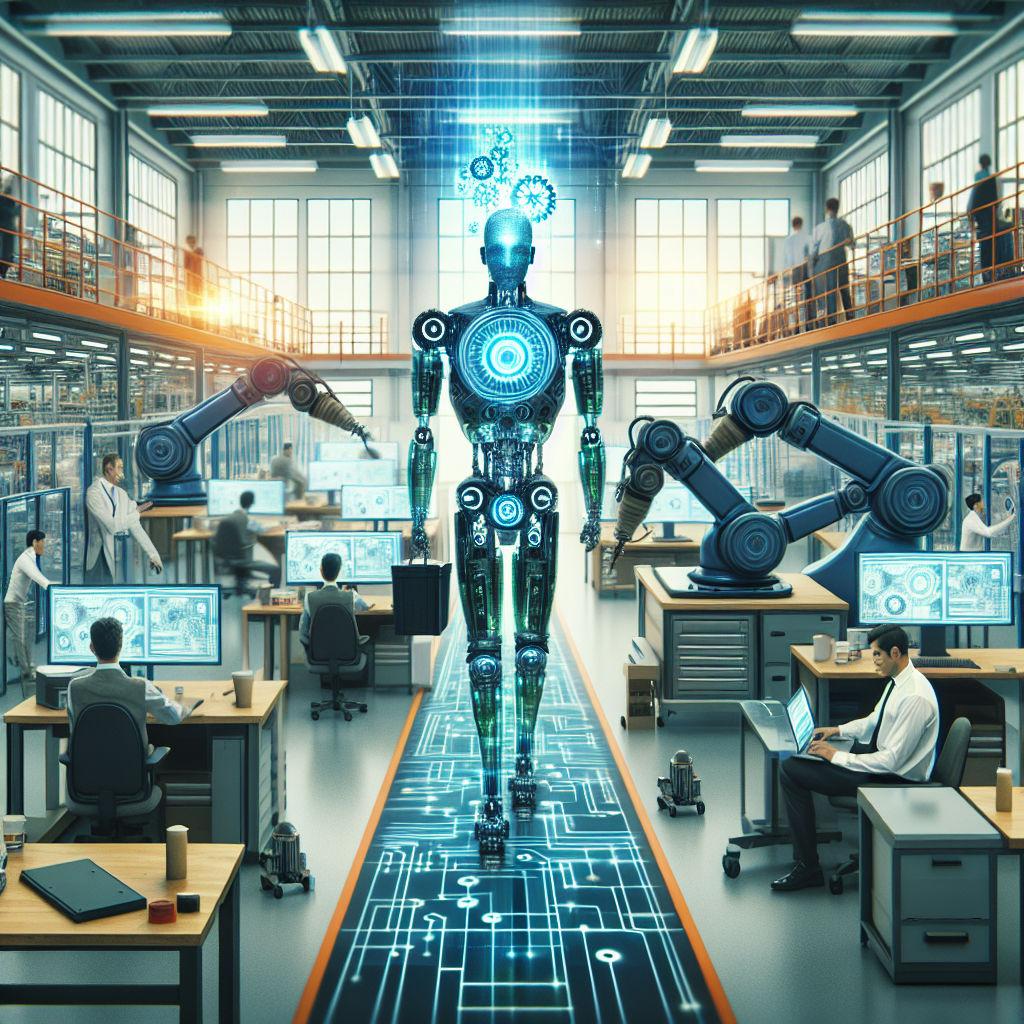Artificial General Intelligence (AGI) is a term that refers to the development of machines that possess the ability to perform any intellectual task that a human can do. This technology has the potential to revolutionize the way we work, and its impact on the future of work is a topic of much debate and speculation. One of the key questions that arises when discussing AGI is how automation will impact jobs. Will the rise of AGI result in mass unemployment, or will it create new opportunities for workers? In this article, we will explore the potential implications of AGI on the future of work and discuss some of the key challenges and opportunities that it presents.
The Impact of AGI on Jobs
One of the primary concerns surrounding the development of AGI is the potential impact it will have on jobs. Many fear that the rise of intelligent machines will lead to mass unemployment as more and more tasks are automated. In fact, a report by the McKinsey Global Institute estimates that up to 800 million jobs could be lost to automation by 2030.
However, it is important to note that the impact of automation on jobs is not a new phenomenon. Throughout history, technological advancements have led to the displacement of certain jobs while creating new opportunities in other sectors. For example, the rise of the internet has led to the decline of traditional brick-and-mortar stores, but has also created new opportunities in e-commerce and digital marketing.
Similarly, the development of AGI is likely to lead to the automation of certain tasks, particularly those that are routine and repetitive in nature. Jobs that involve manual labor, data entry, and other routine tasks are at a higher risk of being automated by intelligent machines. However, new opportunities are also likely to emerge in sectors that require creativity, problem-solving skills, and emotional intelligence, areas where machines still struggle to compete with humans.
The key to mitigating the impact of automation on jobs lies in reskilling and upskilling the workforce. As machines take over routine tasks, workers will need to develop new skills that are in high demand in the job market. This includes skills such as critical thinking, creativity, and emotional intelligence, which are difficult for machines to replicate. By investing in education and training programs that focus on these skills, workers can adapt to the changing job market and remain competitive in the age of AGI.
Challenges and Opportunities
While the rise of AGI presents many challenges for the future of work, it also offers a number of opportunities. One of the key benefits of automation is increased efficiency and productivity. By automating routine tasks, businesses can free up their employees to focus on more strategic and creative work, leading to higher levels of innovation and growth.
Automation also has the potential to improve the quality of jobs by eliminating dangerous or repetitive tasks that are often associated with low-wage employment. By automating these tasks, workers can be freed up to focus on more fulfilling and rewarding work, leading to higher levels of job satisfaction and well-being.
However, the transition to a more automated workforce will not be without its challenges. One of the key concerns is the potential for widening income inequality as high-skilled workers benefit from the automation of routine tasks, while low-skilled workers are left behind. In order to address this issue, policymakers will need to implement measures that ensure that the benefits of automation are shared equitably among all workers.
Another challenge is the potential for job displacement in certain sectors. Workers in industries that are heavily reliant on routine tasks, such as manufacturing and transportation, are at a higher risk of losing their jobs to automation. In order to mitigate the impact of automation on these workers, governments and businesses will need to invest in retraining programs and job placement services to help them transition to new roles.
FAQs
Q: Will AGI lead to mass unemployment?
A: While the rise of AGI is likely to lead to the automation of certain tasks, it is not necessarily a guarantee of mass unemployment. Historically, technological advancements have led to the creation of new jobs in other sectors, and the same is likely to be true with the development of AGI. However, workers will need to adapt to the changing job market by developing new skills that are in high demand.
Q: What types of jobs are at risk of being automated by AGI?
A: Jobs that involve routine and repetitive tasks, such as data entry, manual labor, and customer service, are at a higher risk of being automated by AGI. However, jobs that require creativity, problem-solving skills, and emotional intelligence are less likely to be automated, as these are areas where machines still struggle to compete with humans.
Q: How can workers prepare for the rise of AGI?
A: Workers can prepare for the rise of AGI by investing in education and training programs that focus on developing skills that are in high demand in the job market. This includes skills such as critical thinking, creativity, and emotional intelligence, which are difficult for machines to replicate. By developing these skills, workers can adapt to the changing job market and remain competitive in the age of AGI.
In conclusion, the rise of AGI has the potential to revolutionize the way we work, but it also presents a number of challenges for the future of work. By investing in education and training programs that focus on developing skills that are in high demand, workers can adapt to the changing job market and remain competitive in the age of automation. Ultimately, the impact of AGI on jobs will depend on how well we are able to prepare for the changes that lie ahead.

